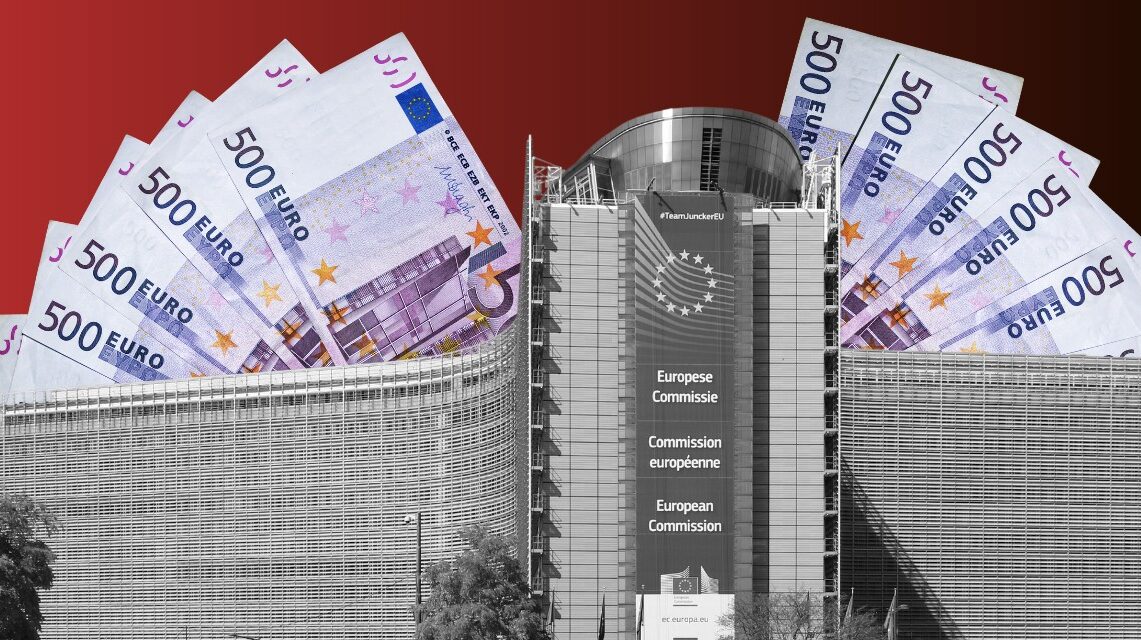Money laundering and terrorist financing pose significant problems for the EU.
They pose serious risks to the EU's economy and financial system, as well as to the security of its citizens. The fight against money laundering and terrorist financing has been at the top of the EU's political agenda for more than thirty years, and the first money laundering directive was adopted in 1991, which has undergone many reforms since then.
In July 2021, the European Commission presented a package of legislative proposals with the aim of further strengthening EU rules on combating money laundering and terrorist financing and improving their enforcement. The need for the package of proposals is justified by the fact that more than 150 billion euros of the EU's annual GDP is involved in suspicious financial activity.
As you know, according to the UN Office for Drug Control and Crime Prevention (UNODC), money laundering globally affects 2-5% of GDP, which meant 1.9-4.9 trillion euros in 2023.
According to Vincent Van Peteghem, the Minister of Finance of Belgium, which holds the consecutive EU presidency, "the package is designed to ensure that fraudsters, organized crime and terrorists do not have the opportunity to launder their income through the EU financial system."
The package includes the following:
• the decree on the establishment of the EU Anti-Money Laundering Authority,
• decree on the obligations of the private sector in relation to the fight against money laundering,
• Directive on mechanisms to combat money laundering,
• revision of the regulation on money transfers.
On 18 January 2024, the Council and the Parliament reached a provisional agreement on the anti-money laundering package. If the representatives of the member states sitting in the Committee of Permanent Representatives and the Parliament approve the texts, they must be officially adopted by the Council and the Parliament. The two bodies are still negotiating the regulation on the private sector's anti-money laundering obligations and the anti-money laundering mechanisms directive. (The final approval parliamentary vote is planned for April 22-25, 2024.)
The new anti-money laundering and countering the financing of terrorism regulation harmonizes and clarifies the rules across the EU, including, for example, more detailed provisions on customer due diligence and beneficial owners, as well as the powers of national supervisors and financial intelligence units.
With the new regulation, the EU creates a directly applicable regulatory framework containing requirements for obliged service providers – mainly credit institutions and financial institutions, as well as designated non-financial businesses and professions (e.g. lawyers and accountants).
Based on the regulation, in principle, the upper limit of cash payments in the EU as a whole will be EUR 10,000. Member States may set a lower upper limit. In the case of crypto-assets and investments, customer due diligence will be mandatory above the €1,000 limit. The customer due diligence and notification obligation also extends to luxury goods dealers, jewelers, watchmakers and goldsmiths, and dealers in luxury cars, airplanes and yachts, as well as art treasures and works of art, also become obliged service providers.
Obligated service providers will have to apply enhanced due diligence measures with regard to occasional transactions and business relationships involving high-risk third countries in which deficiencies in national anti-money laundering and anti-terrorism systems threaten the integrity of the EU's internal market.
EU Anti-Money Laundering Authority
The EU is creating a new agency called the Authority for Anti-Money Laundering (AMLA) in order to improve supervision in the fight against money laundering and terrorist financing in the Union and to support cooperation between financial intelligence units. The EU authority will start operating in Frankfurt in mid-2025 with more than 400 employees.
This is the first time that the European Parliament and the Council jointly agreed on the host city of a new EU agency. The proposal for the creation of AMLA was put forward as part of the Commission's package of legislative proposals on combating money laundering and terrorist financing in 2021. On 13 December 2023, the Council and the Parliament reached a provisional agreement on the establishment of the AMLA.
The interim agreement introduces a strengthened mechanism for reporting abuses. As regards obliged providers, AMLA will only deal with notifications from the financial sector, but may also deal with notifications from employees of national authorities.
The AMLA will have powers for binding dispute resolution in the context of financial sector colleges, and in all other cases at the request of the financial supervisor, it will establish an integrated mechanism with the national supervisors of the Member States to ensure that obliged service providers meet their obligations; will directly supervise a number of credit institutions and financial institutions, including crypto-asset providers, that are among the riskiest in the EU; it will play a supporting role with respect to the non-financial sector; will coordinate the financial intelligence units in the Member States; it will also impose administrative fines in case of serious violations.
AMLA will monitor whether the selected obliged service providers have internal policies and procedures in place to ensure the implementation of targeted financial sanctions and the freezing and confiscation of assets.
The first serious criticisms have already appeared
Frankfurt provides relatively easy access to the global banking system – an international financial network largely defined by interests outside of Europe – and in light of this, it is now questionable whether the effective enforcement of either the federal laws in force in Germany or the existing EU norms sufficiently ensures the To combat crimes that may seriously endanger the financial interests of the European Union.
Although Frankfurt, which is the seat of the European Central Bank, like Brussels itself - in terms of slogans and program level - has so far resolutely focused on leading the fight against money laundering, the question of the future is whether or not the EU's actual institutional and financial stability (e.g. at the cost of war lobbies) will a bracketed interest group take over power in Frankfurt, which could also cause serious problems regarding the operation of the new EU anti-money laundering institution.
It is telling that Mike Josef, the mayor of Frankfurt, highlighted the city's diverse culture recently, thereby guaranteeing that AMLA employees from "everywhere" will be welcome in the city. As he put it:
"As a child of refugees, I am now the mayor of Frankfurt," he added: "We are waiting for potential people."
According to the 2022 findings of the intergovernmental organization Financial Action Task Force (on Money Laundering) (FATF), today Germany faces a very significant terrorist financing risk, and Germany could use the targeted financial sanctions system more proactively than before as a preventive measure to freeze the assets of terrorists. The essence of the findings is that despite new German federal laws to combat economic crimes, only real efficiency would enable, for example, Frankfurt to actually play a leading role in the fight against money laundering.
Financial pressure from outside the EU (especially from the direction of the American Democrats) is also an important challenge today, and in this regard, the reorganization and fine-tuning of the financial "zone of influence" can be observed, according to Reuters: Munich is starting to partially take over the role of the financial center, Frankfurt, and new foreign banks are arriving in the Bavarian capital today. Thus, e.g. companies such as Goldman Sachs or Morgan Stanley were attracted by large German companies such as Siemens, Allianz or BMW, and as a result, American investment banks and financial service providers significantly strengthened their presence in the Munich area.
In connection with the huge financial scandal of recent years, Deutsche Bank (which is headquartered in Frankfurt) has agreed to pay more than 130 million dollars to a US federal law, the so-called to resolve a government investigation into violations of the Foreign Corrupt Practices Act (FCPA) and a separate investigation into a commodity fraud scheme.
According to the admissions and court documents, between 2009 and 2016, Deutsche Bank, through its employees and agents, knowingly and intentionally maintained false books, records and invoices to conceal the payment of bribes to a business development consultant using false payment justifications.
On January 19, 2021, the European Commission presented a new strategy entitled Strengthening Europe's economic and financial sovereignty with the aim of the EU playing a leading role in global economic governance, while at the same time protecting the union from unfair and abusive practices, e.g. by further developing the EU's financial market infrastructures and improving their resilience, as well as by further promoting the uniform implementation of the EU's own sanctions.
It is difficult to ignore the fact that the EU has implemented a failed Ukraine policy in the past two years with international sanctions against Russia (largely of financial interest), and in light of everything, strengthening trust in another EU authority can be a serious challenge.
According to some, Brussels is also contributing to the realization of its globalist goals by setting up the AMLA, to weakening the sovereignty of the member states, and is implementing another withdrawal of powers, since until now the aforementioned supervision and sanctioning was the responsibility of the member states. According to Article 5 (1) of the Treaty on the European Union (hereinafter: TEU), the exercise of EU powers is governed by the principles of subsidiarity and subsidiarity.
Critics note that many citizens in the EU, especially among the older age group, still do not have bank accounts, so their financial sovereignty is significantly reduced by the approved package of proposals and the AMLA.












